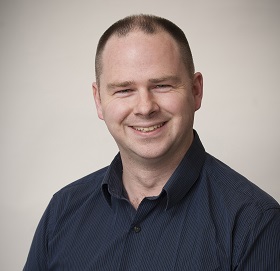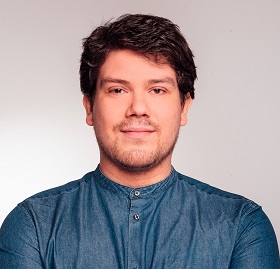Sunday, 22 June 2025, 13:30 - 17:30 CEST (Central European Summer Time - Sweden)
Dr Nasrine Olson (short bio)
Associate Professor at the Swedish School of Library and Information Science, University of Borås, Sweden
Dr Raymond Holt (short bio)
Lecturer at the School of Mechanical Engineering at the University of Leeds, UK
Dr Arthur Theil (short bio)
Lecturer in Human-Computer Interaction at the College of Computing at Birmingham City University, UK
Modality
on-site
Room: TBA
Target Audience
- Researchers/ academics
- students
- professionals
- industry
- designers
Requirements for participants
Course participants should bring their own laptop or tablet
Abstract
This introductory course explores the fundamentals of designing accessible technologies and conducting Human-Computer Interaction (HCI) research with a focus on co-design methodologies. Participants will learn about accessibility principles and how to engage diverse users, including those with disabilities, in the design process. Drawing on experience from several large EU-funded co-design projects, the course will provide hands-on insights into successful and less successful co-design strategies and real-world challenges. The course also introduces key HCI research methods for evaluating the inclusivity and usability of digital systems.
Benefits for attendees
- Understand foundational principles of equal opportunities for all and accessibility in technology design.
- Learn practical co-design strategies to enhance inclusivity, drawn from large-scale projects.
- Gain an introduction to HCI research methods with a focus on accessibility and usability.
- Apply co-design practices based on real-world experiences in large participatory projects.
Aim
To introduce participants to principles of co-design for HCI research and provide them with practical skills, showcasing lessons learned from previous co-design initiatives.
Objectives
- To introduce participants to the concepts of participatory design, co-design, emphasising their value in advancing HCI research.
- To explore different levels of participation in research, highlighting the benefits and challenges for both participants and researchers.
- To introduce participants to ethical consideration, practical issues, and potential solutions in implementing co-design methodologies.
- To provide participants with practical examples of these issues drawn from previous research projects.
- To give participants the opportunity to reflect on their own research practice and how they might adopt co-design principles.
Course Content
- Introduction to Human Rights, Accessibility and Inclusive Design in HCI
- Co-Design: Involving Diverse Users in the Design Process.
- Insights from Large EU-Funded Co-Design Projects: Challenges and Solutions (including practical issues of involving persons living with disabilities in the co-design process could also be addressed).
- HCI Research Methods for Evaluating Accessibility and Usability in relation to users living with disabilities.
Bio Sketch of Course instructors

Nasrine Olson (PhD, Docent) is an Associate Professor in the field of Library and Information Science at SSLIS, University of Borås, Sweden. Core research interests relate to issues of power and the relationship between day-to-day action, and broader societal structures. In the more recent years the focus has been on the societal implication of ICTs and information practices that enable or hinder the potential for equal opportunity for all. Towards this, Nasrine has adopted participatory practices in her research and has developed methodologies and technical innovations for haptic communication. She has also been instrumental in creating research environments that promote, and lead to, improved inclusive technologies and environments by coordinating projects such as EU-funded projects SUITCEYES (H2020 – 2018-2021 -- among others it included development of haptic technologies for communication with, and by, users with deafblindness) and MuseIT (HE – 2022-2025 -- among others it involves development of multisensory representation of cultural assets for broader accessibility). Nasrine is also the director of an interdisciplinary research centre called INCLUDE – Centre for Inclusive Studies, where through critical examination the ideology of normal, the unequal treatments of societal members will be explored.

Raymond Holt (PhD) is a Lecturer in Product Design in the School of Mechanical Engineering at the University of Leeds (UK), where he is a member of the Institute of Design, Robotics and Manufacture, the Immersive Cognition Lab and the Centre for Disability Studies. His core research interests are the study of haptic perception and prehension and the cocreation of assistive and rehabilitation technologies with users. He has led co-creation activities on two rehabilitation robotics projects funded by the National Institute for Health Research, and led the Leverhulme Trust-funded project Facilitating Meaningful Play for Disabled Children through Participatory Design. He has recently been part of the European Commission funded project SUITCEYES, where he led activities on the sensing and navigation elements, and is currently extending this work as part of the Wellcome Trust-funded Imagining Technologies for Disability Futures project.

Arthur Theil (PhD) is a Lecturer in Human-Computer Interaction at the College of Computing at Birmingham City University (UK). His research focuses on the study of novel interaction techniques to support users with diverse sensory abilities. His current focus is on designing accessible interfaces for individuals with multisensory impairments (e.g. deafblindness). Arthur has also conducted accessibility research with older adults who experience age-related changes in sensory, cognitive, and motor abilities. In addition to conducting academic work, Arthur currently also serves on the ACM SIGCHI Accessibility Committee and is part of the Program Committee for the ACM SIGACCESS ASSETS Conference.
Course history
- Accessibility Research and Users with Multiple Disabilities or Complex needs, Workshop at ASSETS, Sept 2023
- Designing the Ultimate Tracking Device, Interactive Workshop Session, University of Leeds, Seminar on Tracking People: Technological and
- Methodological Challenges, 15th June 2017 - introduce Sociotechnical Systems Analysis
- Designing the Ultimate Wearable, Interactive Workshop Session, Birmingham University Network on Wearable Technologies, 8th June 2023; and
- Disability and Inclusion – Sharing understandings, Workshop at the University of Borås, May 2023
- From Theory to Impact – Expanding Horizons Through Applied Research and Collaboration, talk at the Kritfunk network seminar, April 2024
- Fusing Technology and Inclusion to Amplify Diverse Voices and Cultures, Panel seminar at the Gothenburg book fair, September 2024
- Leading Sustainable Change through Inclusion and Innovation, talk at young leaders’ network, Spader ess, Sweden, April 2024
- Lyssna till din hjärma (Listen to you brain), panel discussion at the science festival Gothenburg, Sweden April 2024
- Multidisciplinary Perspectives on Designing Accessible Systems for Users with
- Multiple Impairments: Grand Challenges and Opportunities for Future Research,
- Workshop at ASSETS, Oct. 2022
- Participatory Ideation, Workshop at IRCAM, Jan 2023


